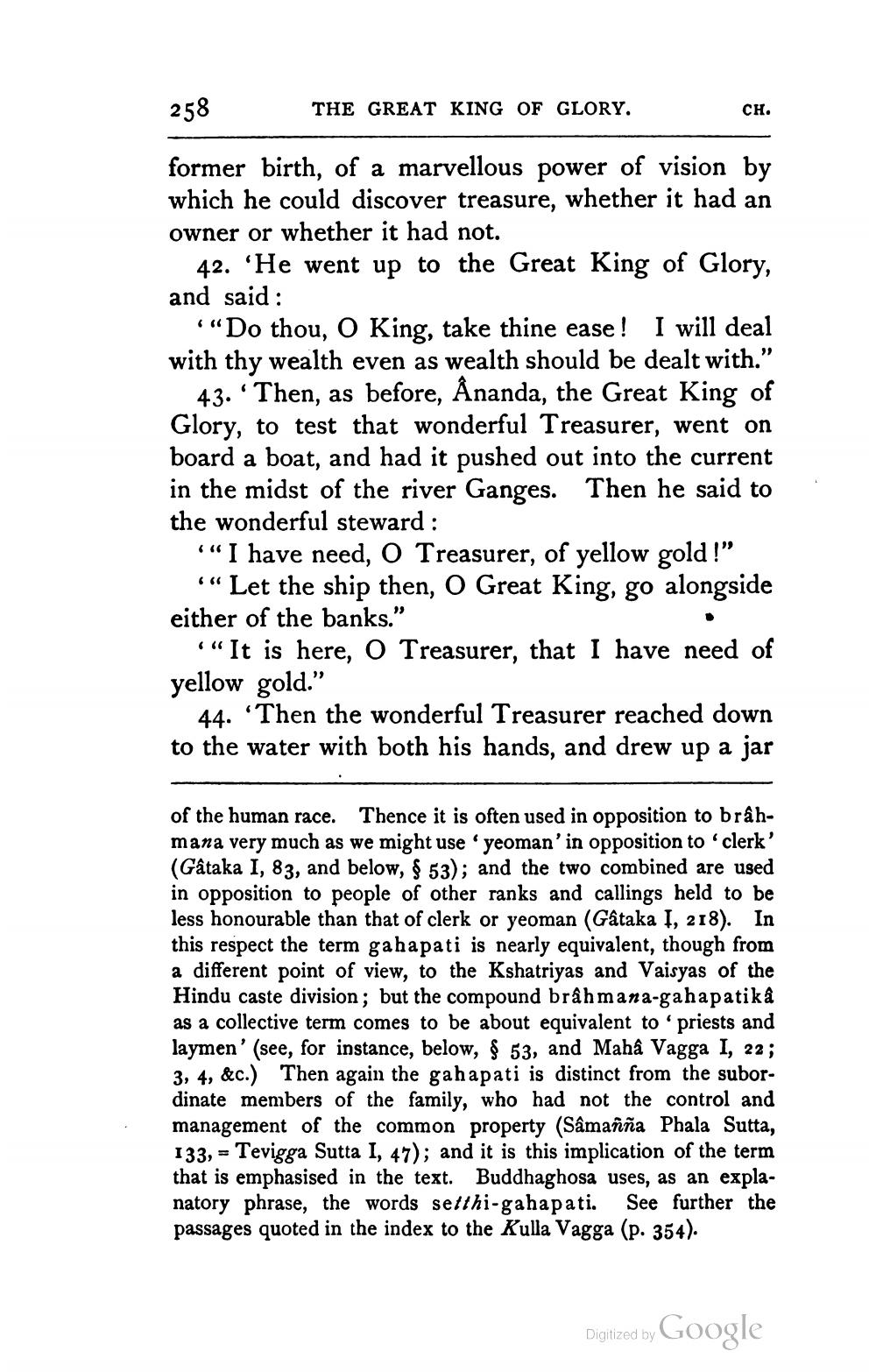________________
250
258
THE GREAT KING OF GLORY.
CH.
former birth, of a marvellous power of vision by which he could discover treasure, whether it had an owner or whether it had not.
42. 'He went up to the Great King of Glory, and said:
"“Do thou, O King, take thine ease! I will deal with thy wealth even as wealth should be dealt with."
43. “Then, as before, Ånanda, the Great King of Glory, to test that wonderful Treasurer, went on board a boat, and had it pushed out into the current in the midst of the river Ganges. Then he said to the wonderful steward :
"“I have need, O Treasurer, of yellow gold !" ““ Let the ship then, O Great King, go alongside either of the banks."
"It is here, O Treasurer, that I have need of yellow gold.”
44. Then the wonderful Treasurer reached down to the water with both his hands, and drew up a jar
of the human race. Thence it is often used in opposition to brâhmana very much as we might use yeoman'in opposition to clerk' (Gâtaka 1, 83, and below, $ 53); and the two combined are used in opposition to people of other ranks and callings held to be less honourable than that of clerk or yeoman (Gâtaka I, 218). In this respect the term gahapati is nearly equivalent, though from a different point of view, to the Kshatriyas and Vaisyas of the Hindu caste division; but the compound brâhmana-gahapatika as a collective term comes to be about equivalent to priests and laymen' (see, for instance, below, $ 53, and Maha Vagga I, 22; 3, 4, &c.) Then again the gahapati is distinct from the subordinate members of the family, who had not the control and management of the common property (Sâmañña Phala Sutta, 133, = Tevigga Sutta I, 47); and it is this implication of the term that is emphasised in the text. Buddhaghosa uses, as an explanatory phrase, the words setthi-gahapati. See further the passages quoted in the index to the Kulla Vagga (p. 354).
Digitized by
Digitized by Google




